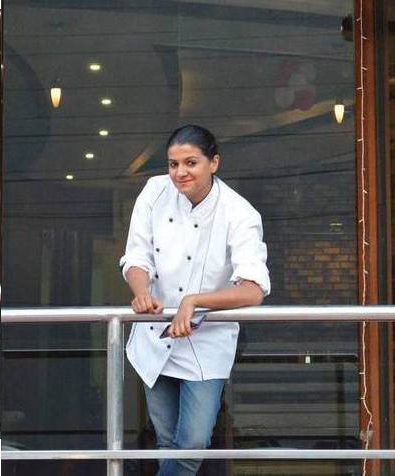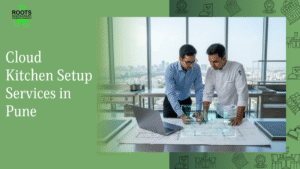Opening or running a restaurant is one of the most exciting yet challenging ventures in the food industry. While passion for food is essential, successful restaurants are built on strategic planning, efficient operations, and market insights — areas where a restaurant consultant plays a crucial role.
A professional restaurant consultant brings deep industry expertise to guide entrepreneurs through concept creation, kitchen setup, menu design, staff training, and marketing. The right consultant doesn’t just solve problems; they help you avoid them before they start.
Alt Text: Restaurant consultant discussing concept and strategy with restaurant owners.
What Does a Restaurant Consultant Do?
A restaurant consultant helps plan, design, and optimize every stage of a restaurant’s journey — from idea to execution. They combine business acumen with culinary understanding to ensure your restaurant is sustainable and profitable.
Key areas of expertise include:
- Concept development and feasibility studies
- Kitchen layout and equipment planning
- Menu design and engineering
- Staff training and operational SOPs
- Branding, marketing, and revenue optimization
Partnering with an experienced consultant like Roots Restaurant Consultancy ensures that every decision you make is backed by strategy and data, not guesswork.
When Should You Hire a Restaurant Consultant?
It’s a misconception that consultants are only for new openings. In reality, consultants add value across multiple stages of a restaurant’s lifecycle.
Hire a consultant when you:
- Are starting a new restaurant, café, or cloud kitchen.
- Want to expand or franchise your existing outlet.
- Are facing operational inefficiencies or declining profits.
- Need help with rebranding or menu revamps.
- Require staff retraining or quality improvement.
By hiring a restaurant consultant early, you avoid costly mistakes in design, budgeting, and execution.
Step 1: Define Your Restaurant Goals Clearly
Before engaging a consultant, define what you hope to achieve. Clarity helps you find an expert who aligns with your vision.
Ask yourself:
- Do I want to open a new restaurant or optimize an existing one?
- What kind of cuisine and audience am I targeting?
- Am I seeking help with concept design, operations, or marketing?
Documenting these goals ensures productive collaboration and measurable outcomes.
Step 2: Research Consultant Credentials and Portfolio
Not all consultants offer the same expertise. Verify your consultant’s background before committing.
Checklist for evaluation:
- Industry experience (years, brands, projects).
- Case studies or client testimonials.
- Area of specialization (restaurants, cloud kitchens, cafés, hotels).
- Professional affiliations or certifications.
- Local market knowledge.
For example, Roots Restaurant Consultancy showcases case studies from successful Indian restaurant and cloud kitchen projects — a strong indicator of reliability and results.
Step 3: Ask the Right Questions During Consultation
The key to choosing the right restaurant consultant lies in the questions you ask. Use your first meeting to understand their approach, methodology, and deliverables.
Essential questions include:
1. What services are included in your consulting package?
Ensure the scope covers concept creation, kitchen design, menu planning, staff training, and marketing support.
2. What is your approach to project timelines?
Ask how long the setup or revamp will take, and what milestones are planned for delivery.
3. How do you handle cost control and budgeting?
A good consultant will focus on cost efficiency while maintaining quality standards.
4. Can you share some of your past projects?
Request case studies or examples relevant to your cuisine type or business model.
5. How do you measure success after project completion?
A great consultant will provide measurable KPIs — like improved sales, lower wastage, or better staff productivity.
6. Do you offer ongoing support after setup?
Look for consultants who provide external leadership and mentoring, not just one-time setup assistance.
Alt Text: Restaurant consultant explaining operational plan to kitchen team.
Step 4: Evaluate the Consultant’s Communication and Compatibility
A restaurant consultant will work closely with your team, so compatibility matters as much as expertise.
Assess their communication style, willingness to listen, and ability to translate your ideas into practical solutions.
Ask:
- Do they communicate complex concepts clearly?
- Are they open to your inputs?
- Do they offer transparent pricing and deliverables?
A consultant who aligns with your working style ensures smoother execution and fewer conflicts during the project.
Step 5: Understand the Fee Structure and Deliverables
Consultants may charge a flat fee, hourly rate, or project-based cost. Always clarify payment terms and deliverables upfront.
What to include in your agreement:
- Detailed scope of work
- Clear milestones
- Reporting formats (weekly or bi-weekly)
- Confidentiality clauses
- Post-project support details
Transparency builds trust and helps avoid future misunderstandings.
Step 6: Analyze the Consultant’s Network and Industry Access
A major benefit of hiring a seasoned restaurant consultant is their network. Established consultants have connections with:
- Equipment suppliers
- Vendors and contractors
- Licensing authorities
- Food aggregators and marketing agencies
These networks can save time and money, allowing you to focus on operations instead of vendor negotiations.
For example, Roots Restaurant Consultancy leverages its industry partnerships to help clients access the best materials, technology, and talent efficiently.
Step 7: Assess the Consultant’s Problem-Solving Ability
Every restaurant faces challenges — from staff turnover to rising food costs. A capable restaurant consultant identifies the root cause and offers practical solutions.
Indicators of strong problem-solving skills:
- Analytical approach to data and KPIs
- Focus on process improvement
- Adaptability to market trends
- Ability to train and motivate staff
You can explore Operational Diagnostic Services at Roots to understand how performance gaps are identified and resolved.
Step 8: Check Reviews, Testimonials, and Case Studies
Before making a final decision, check online reviews and past client testimonials. Look for:
- Success stories with measurable results
- Repeat clients (a strong sign of satisfaction)
- Diverse portfolio — from cafés to fine dining
Reliable consultants publish before-and-after case studies to showcase their transformation expertise.
Alt Text: Restaurant consultant presenting case study results of improved operations.
Step 9: Insist on a Customized Approach
Avoid consultants who offer one-size-fits-all solutions. Every restaurant is unique — with its own location, audience, and goals.
A professional restaurant consultant should conduct a feasibility study, understand your target demographics, and then recommend solutions specific to your business.
Customized strategies are more likely to yield sustainable success and strong brand identity.
Step 10: Long-Term Benefits of Partnering with the Right Consultant
A well-chosen restaurant consultant provides ongoing value far beyond the initial setup.
They help:
- Maintain operational efficiency
- Train staff and upgrade skills
- Track performance metrics
- Revise menus based on profitability
- Provide mentorship for scaling or franchising
Partnering with experts like Roots Restaurant Consultancy gives you a trusted business ally for continuous growth.
Key Takeaways: What Makes a Great Restaurant Consultant
- Deep understanding of the hospitality industry
- Proven track record with similar projects
- Strong communication and analytical skills
- Ability to deliver both creative and operational solutions
- Commitment to long-term success, not quick fixes
The right restaurant consultant will help you turn your culinary passion into a structured, profitable business model.
FAQs About Restaurant Consultants
Q1. What does a restaurant consultant charge in India?
Fees vary based on project size. Small setups may range from ₹50,000–₹2,00,000, while end-to-end consultancy for larger formats can cost more.
Q2. How long does a restaurant consultancy project take?
Typically 4–12 weeks, depending on whether it’s a setup, audit, or expansion project.
Q3. Can consultants help existing restaurants improve performance?
Yes. Consultants specialize in identifying operational inefficiencies, retraining staff, and re-engineering menus to improve profits.
Q4. Is it worth hiring a restaurant consultant for a cloud kitchen?
Absolutely. Consultants help design layouts, plan menus, and manage licensing to make cloud kitchens more efficient.
Q5. How can Roots Restaurant Consultancy assist me?
They offer complete support — from concept development to staff training, menu engineering, and growth mentorship for restaurants across India.







